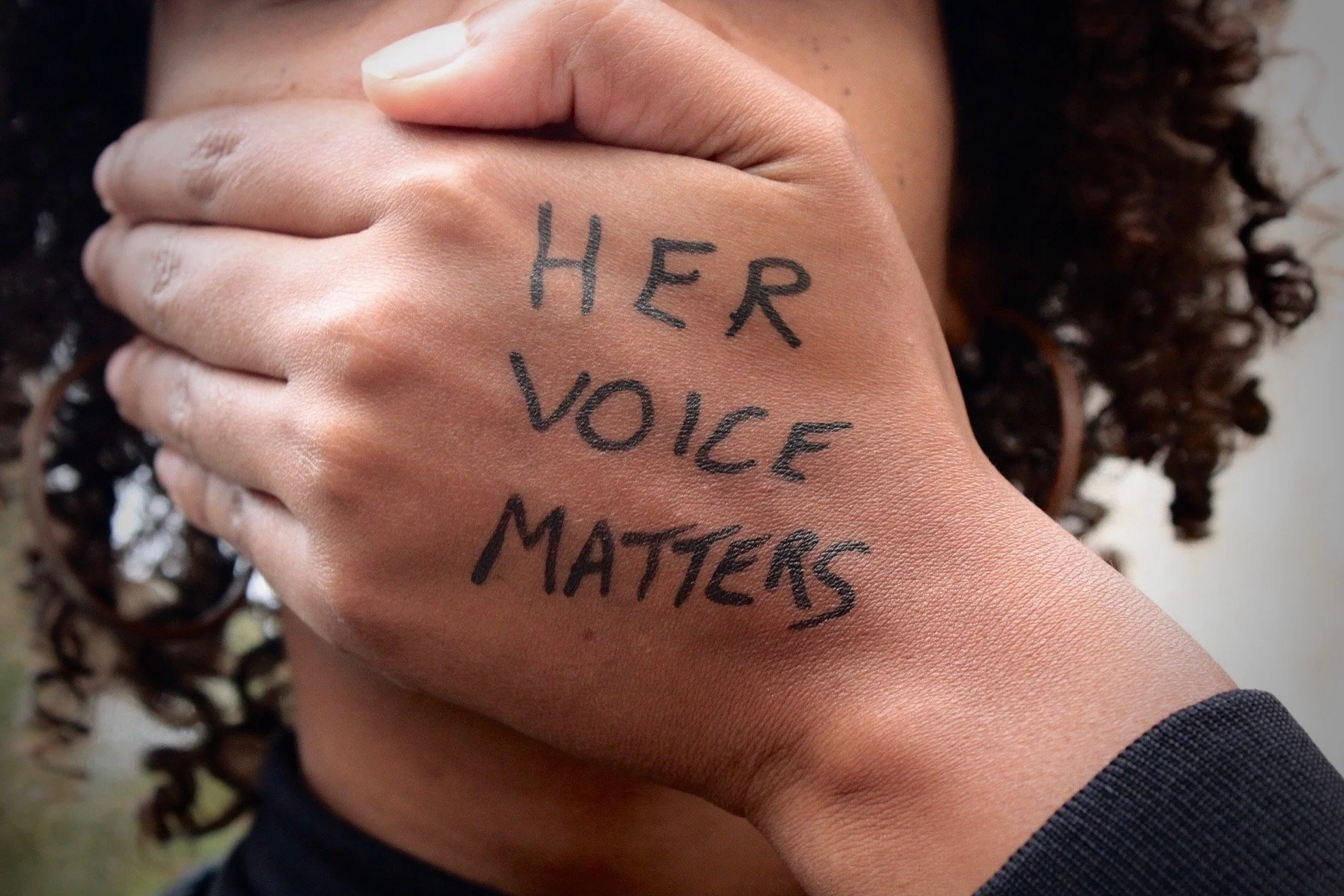Working towards a gender responsive CRIMINAL justice system
Women's Justice Initiative
Women in prison are too often there because of flaws within our criminal justice system.
APPEAL’s Women Justice Initiative uses impact litigation to challenge these injustices and fight for women experiencing multiple and severe disadvantage.
There are too many women in prison who don't need or deserve to be there. More than 80% of the women in prison are there for low level, non-violent offences and about half of the women in prison are there for theft.
Most women are sentenced to very short lengths of time. In 2020 70% of sentences were for less than 12 months. This isn't enough time for any meaningful rehabilitation, but is enough time to lose your home, your children and your job.
Women in prison are also a highly vulnerable group, with 60% of women inside having experienced domestic abuse and 70% having mental health issues (see here). Many of these women do not need to be in prison. We need a justice system that is responsive to the root causes of crime and seeks to rehabilitate women, rather than torpedo their lives.
This is why we support Women in Prison’s campaign to stop the government’s plans to create of 500 additional prison places for women. See our consultation response on women in prison to read more of our policy proposals.
The Women's Justice Initiative represents:
Women criminalised and imprisoned for minor, non-violent or civil offences including the non-payment of the TV license fee and non-payment of council tax
Women sent to prison instead of being given the help they need at a psychiatric hospital
Women imprisoned for alleged crimes which took place in the context of domestic violence and coercive control
Innocent women prisoners, especially those whose ‘crime’ was in fact accidental or the result of natural causes.
If you know a woman in prison whose case fits our criteria, get in touch.
ThIS Initiative is generously supported by the Lankelly Chase Foundation, and is an expansion of appeal’s previous Women’s Sentencing Project.
Poverty is not a crime: ending imprisonment for debt
Did you know that you can end up in prison for owing council tax or for not paying the TV licence fines? Shocking but true. Furthermore, the criminalisation of debt is an issue that disproportionately affects women.
In 2020, 75 per cent of all prosecutions for licence fee non-payment were against women, despite women being half of licence holders. It is the most common offence for which women are prosecuted, accounting for an astonishing 30 per cent of all female prosecutions. Defaulting on your TV licence fine can land you in prison. Read more about our TV licence project here.
Owing council tax is not a crime, and yet this civil debt lands roughly 100 people a year in prison. With a number of councils employing aggressive enforcement tactics and magistrates routinely misapplying the law, many have been wrongfully sent to prison in circumstances where they had to choose between paying the council or paying for food. Read more about our council tax debt project here.
Criminalising debt is an ineffective and unnecessary method of ensuring debtors keep up their payments. Poverty is not a crime and should never be treated as one
DOMESTIC ABUSE AND THE CRIMINAL JUSTICE SYSTEM
APPEAL challenges the unjust criminalisation of survivors of domestic abuse and other forms of VAWG whose alleged offending results from their experience of abuse. Currently, the criminal justice system fails to ensure legal protection for survivors whose alleged crime took place within the context of domestic abuse and coercive control.
The Prison Reform Trust report ‘There’s a reason we’re in trouble’ contains many examples of women who have been convicted of offences that arose directly from their abuse, such as holding drugs for an abusive partner. In the Women’s Justice Initiative, we represent many women for whom that is the case. Alongside our casework we have long been supporting a creation of a statutory defence for survivors who offend due to their experience of domestic abuse. This would offer survivors the same protection that is currently in place for other vulnerable groups.
APPEAL’s submission to the government’s call for evidence for an ‘open consultation’ on the violence against women and girl’s strategy.
The call to evidence was seeking to collect views from those with lived experience of, or views on crimes considered as violence against women and girls. Read our submission here.
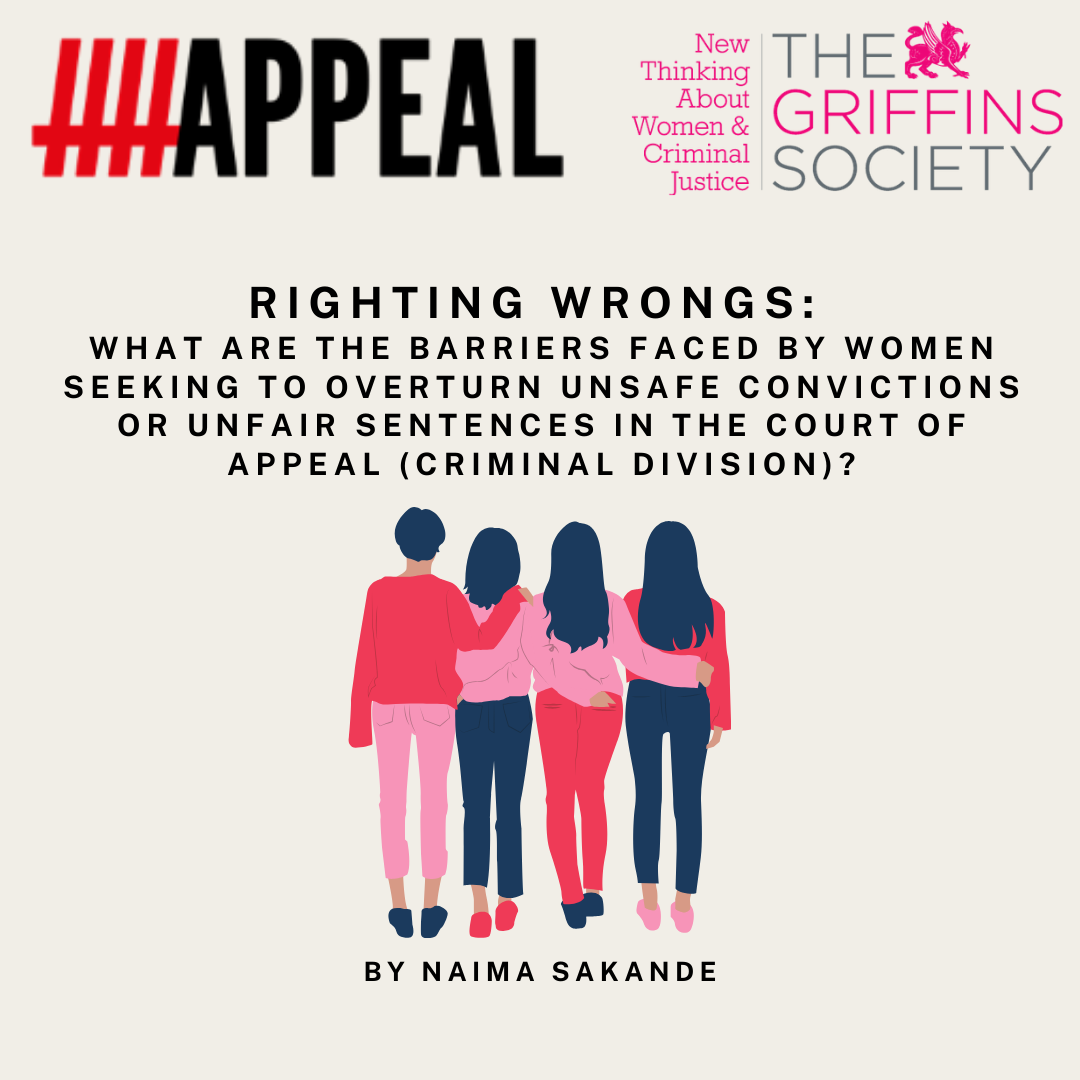
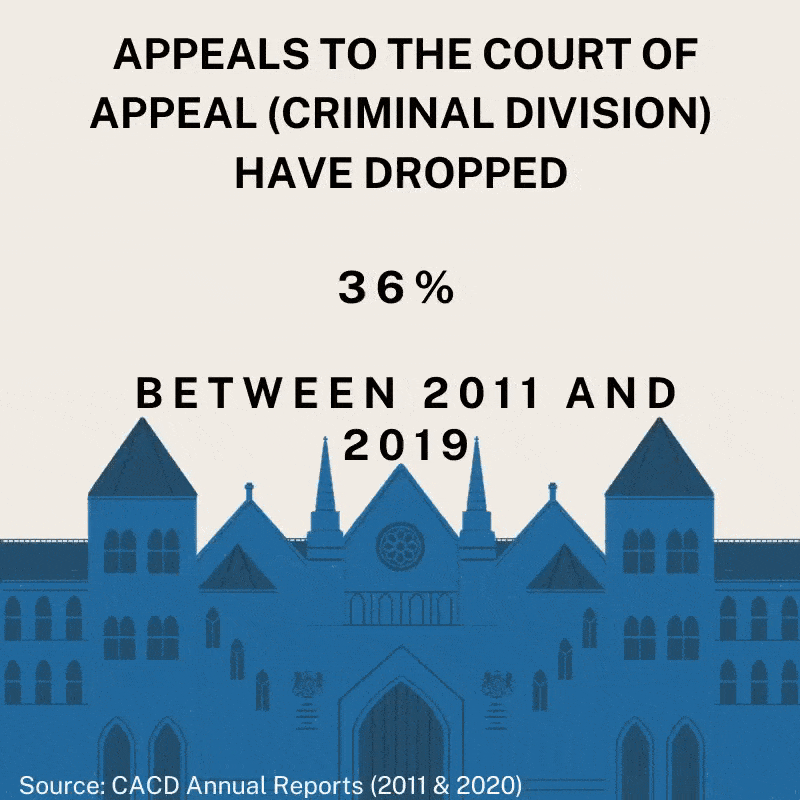
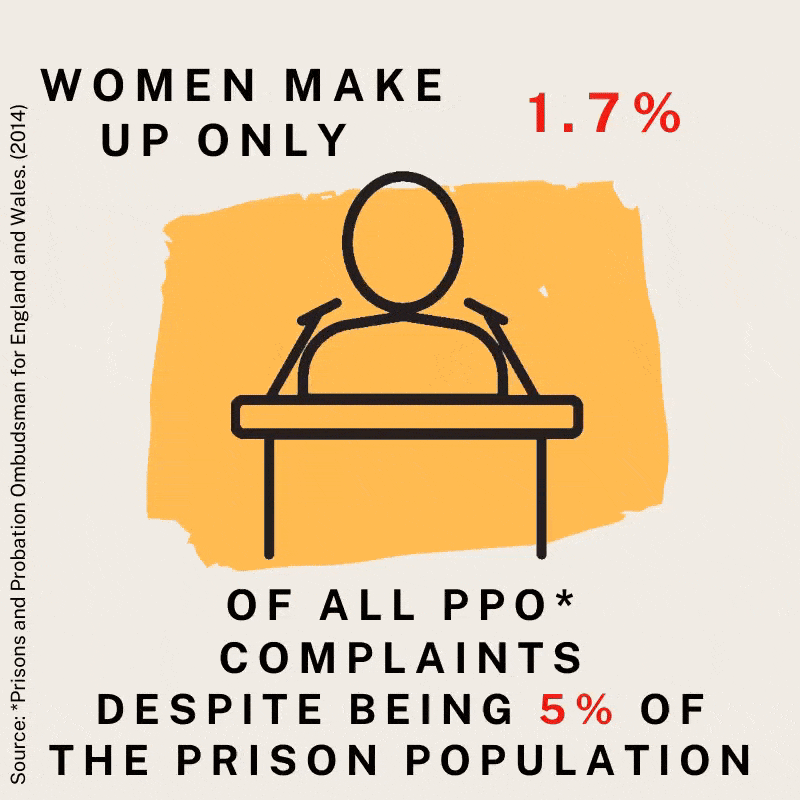
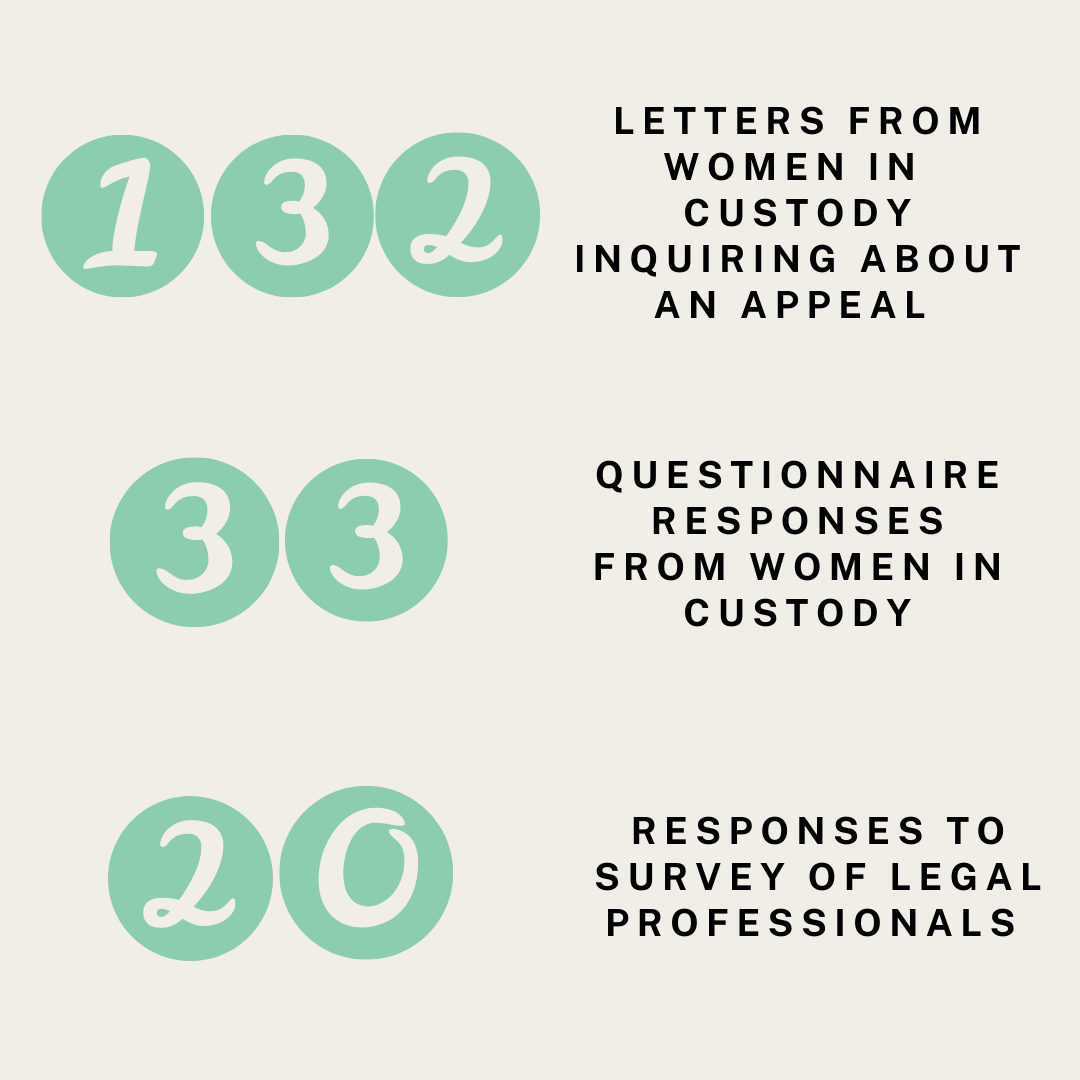

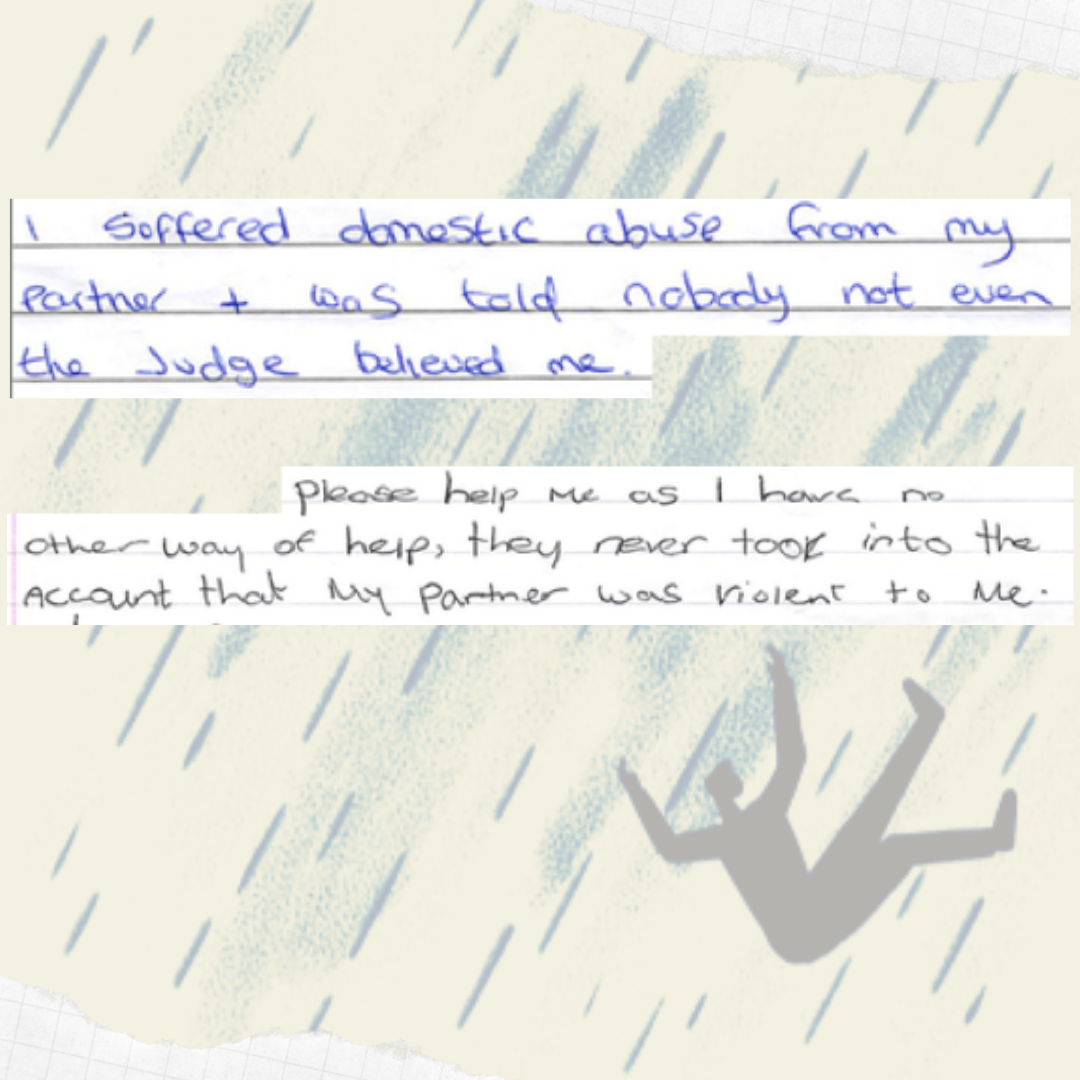
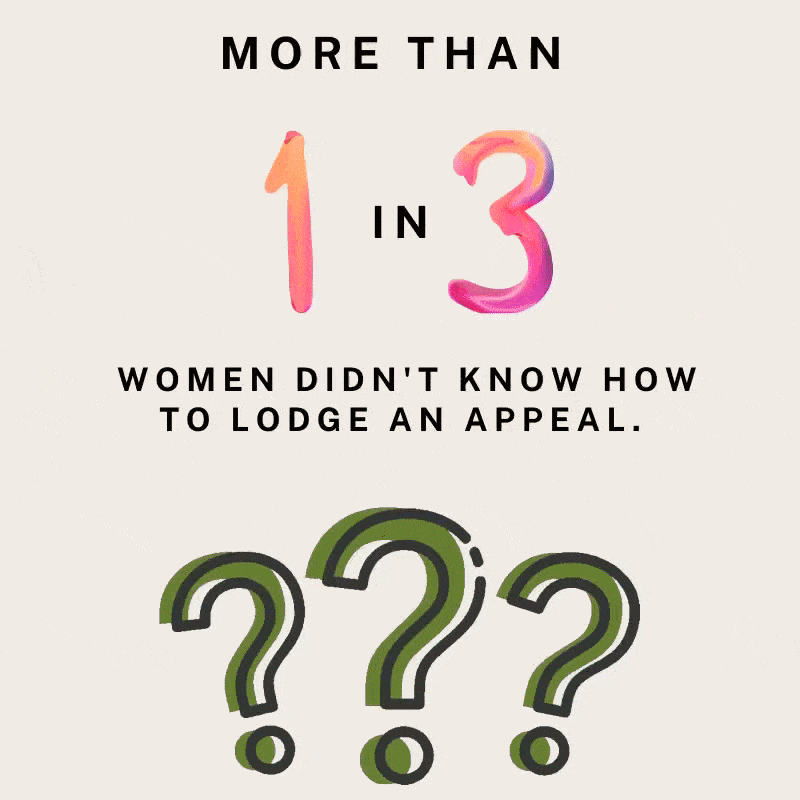
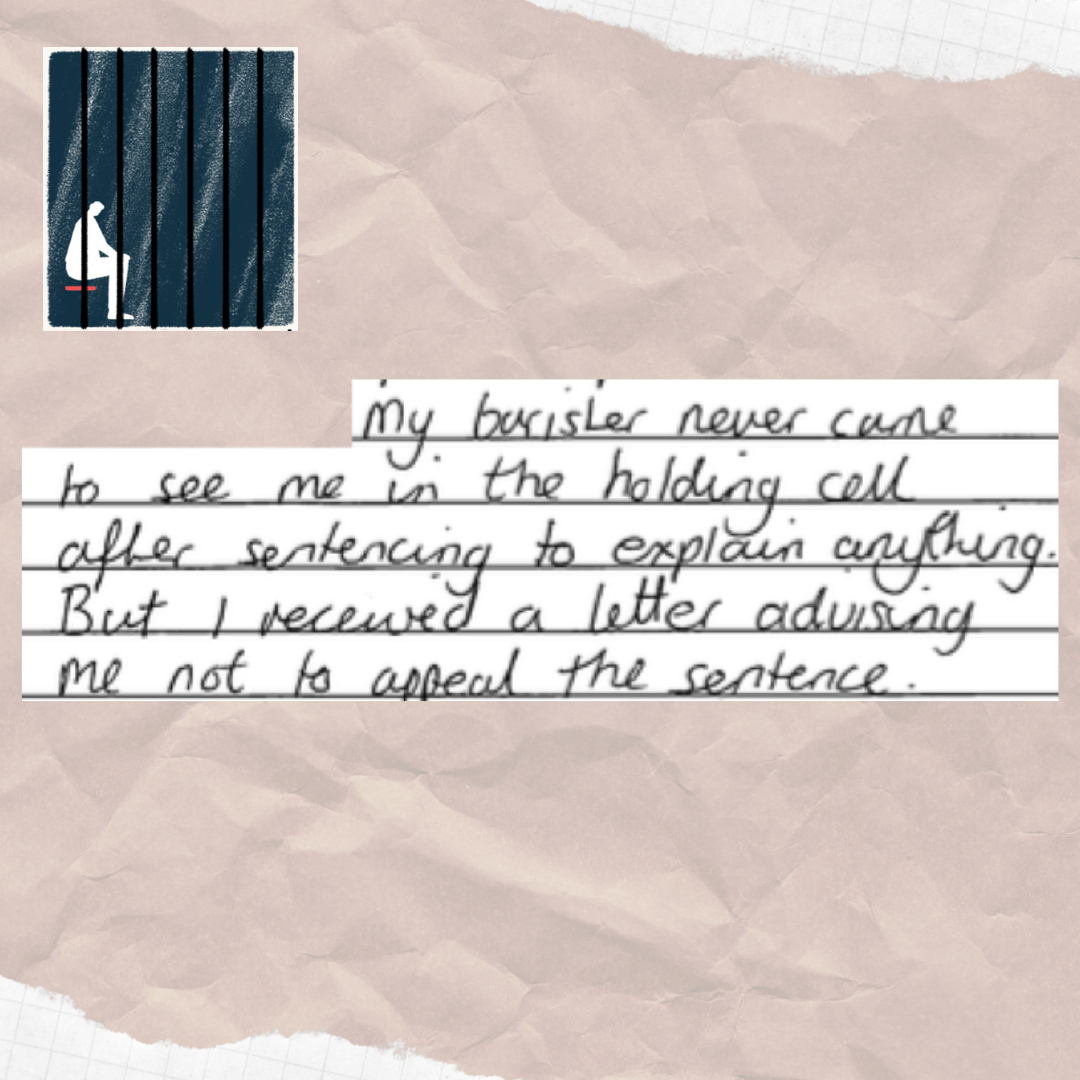
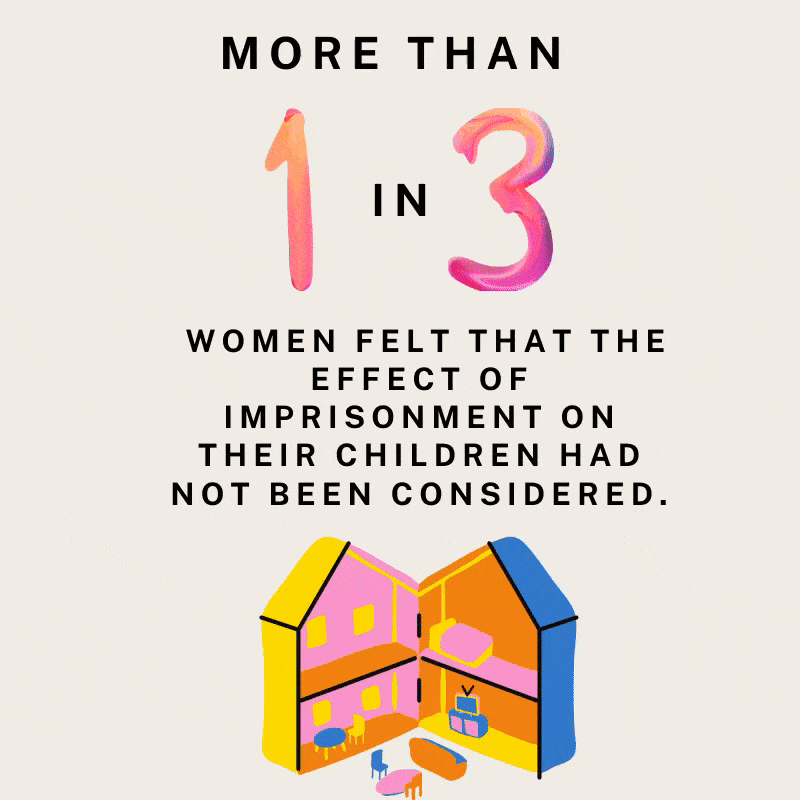
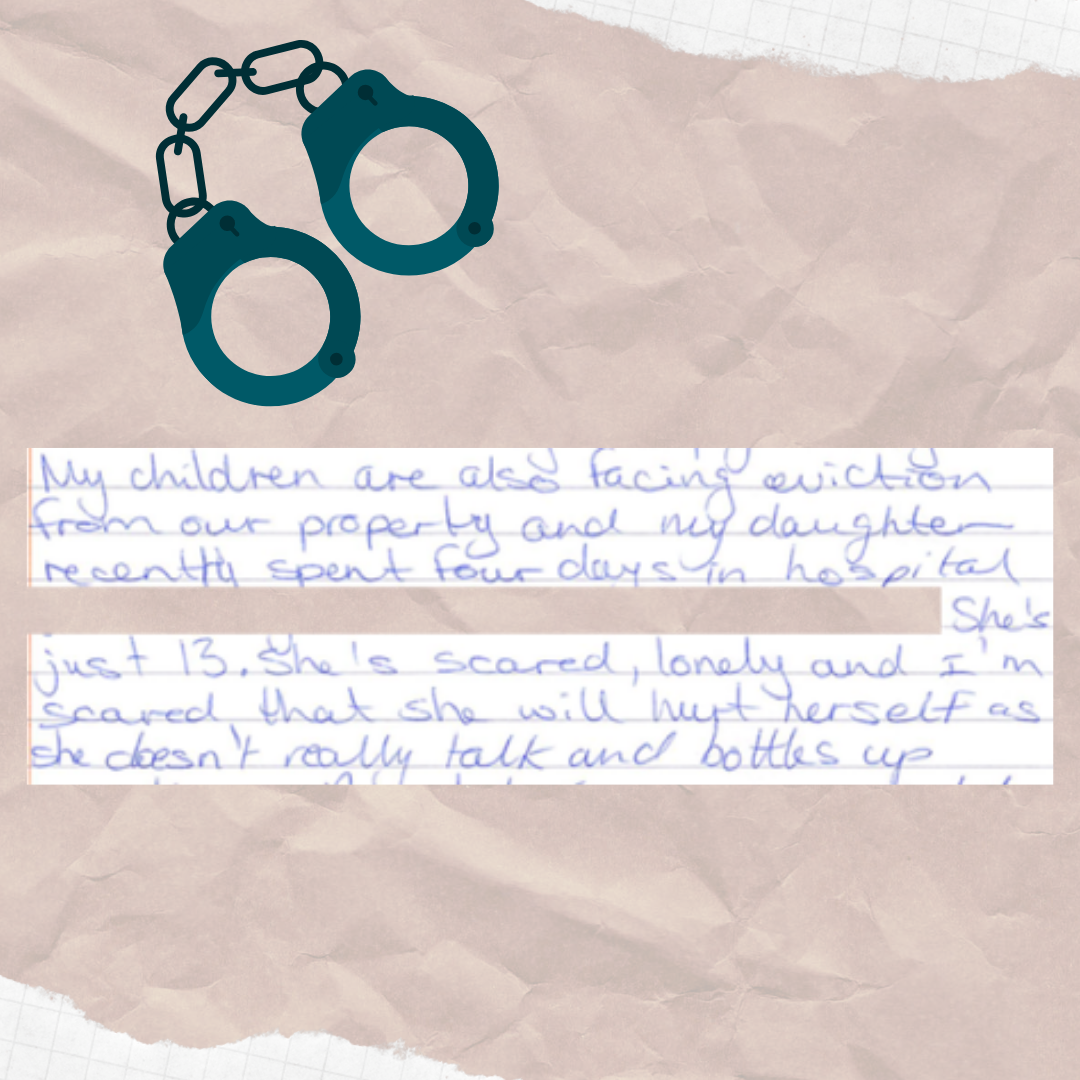
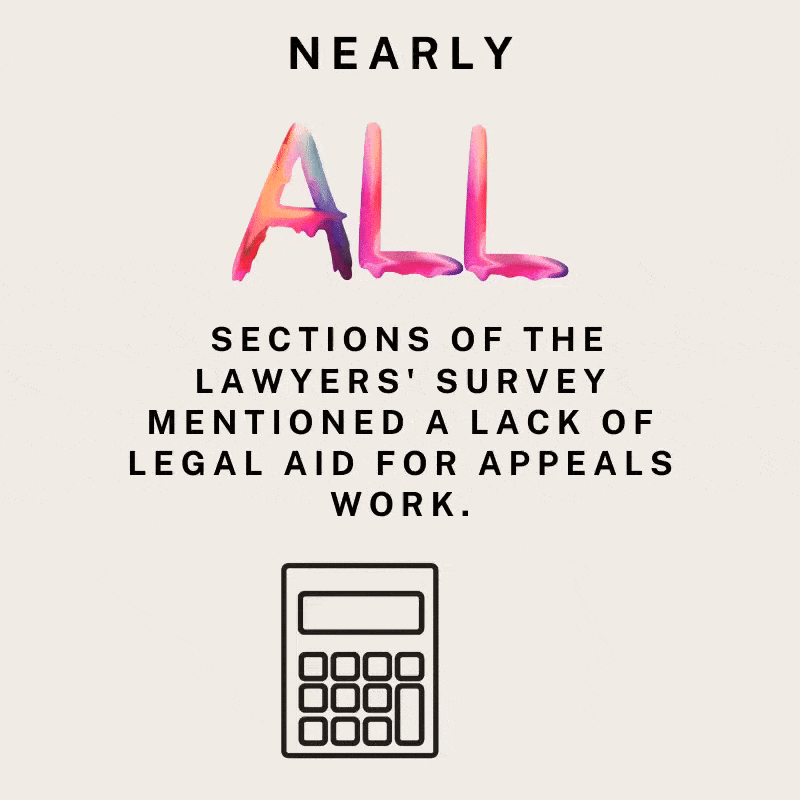
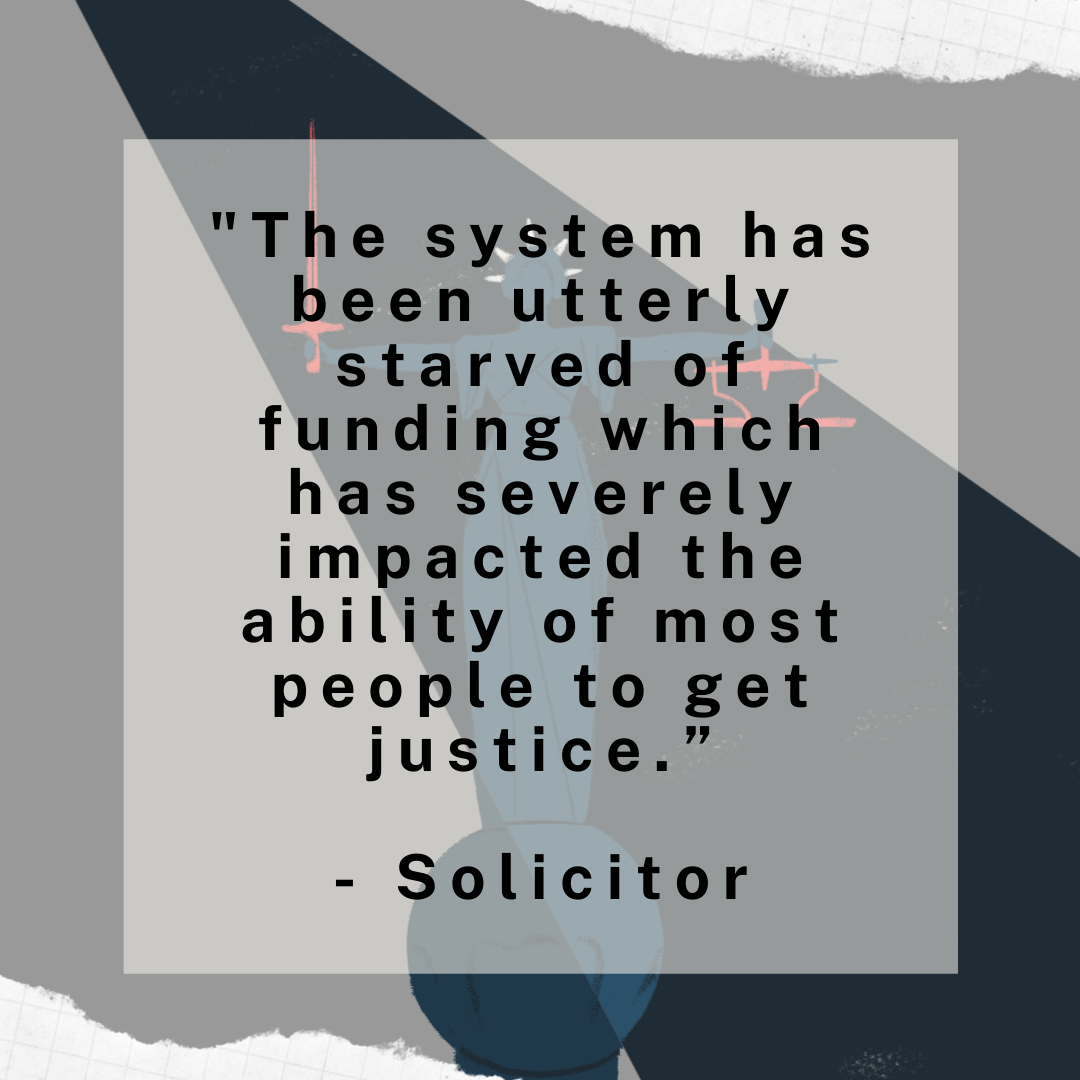
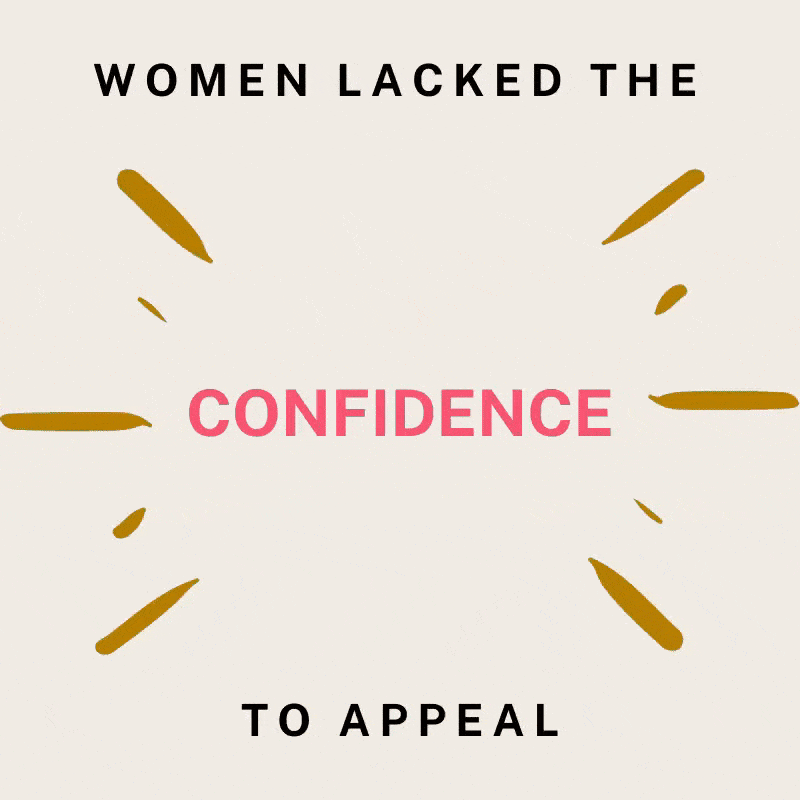
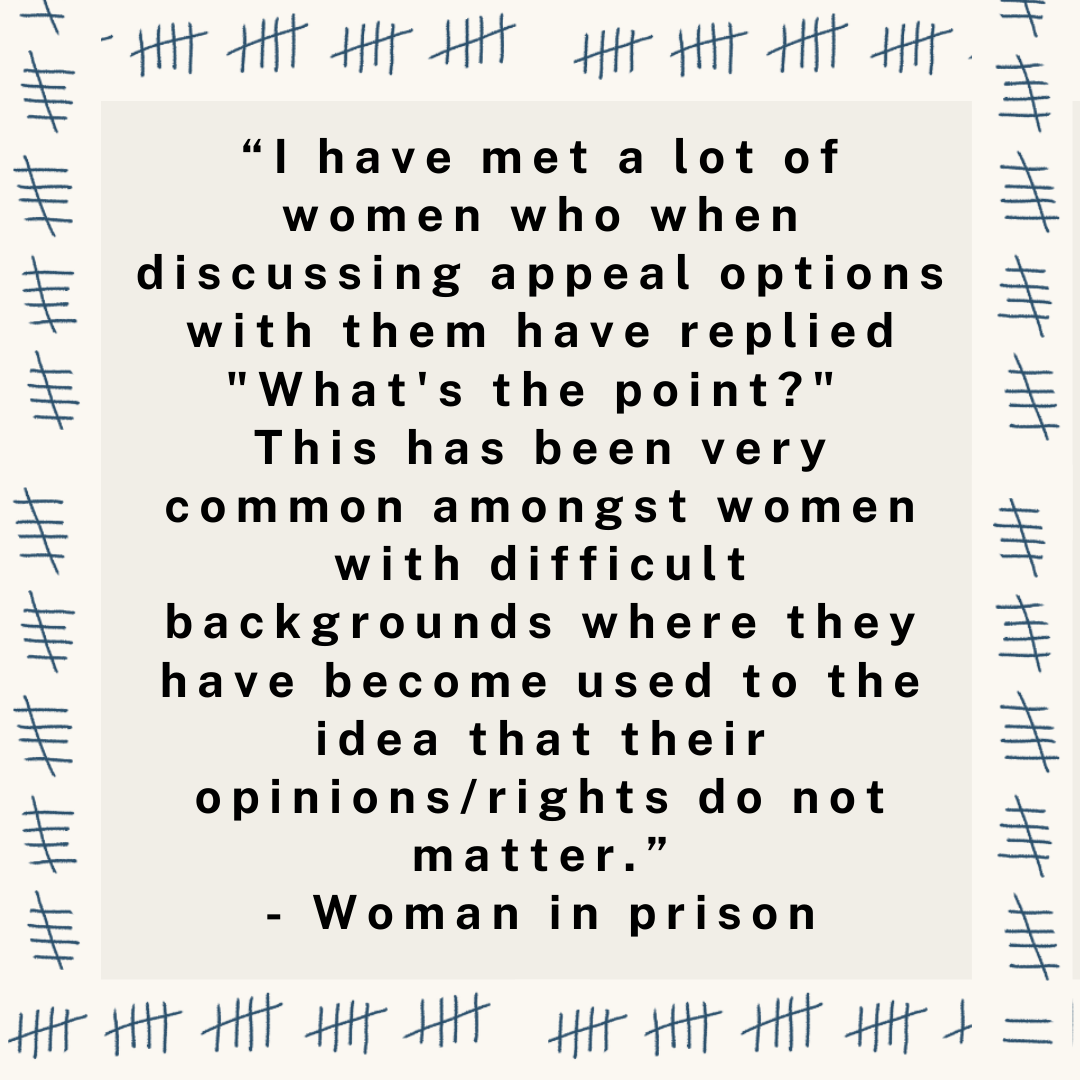
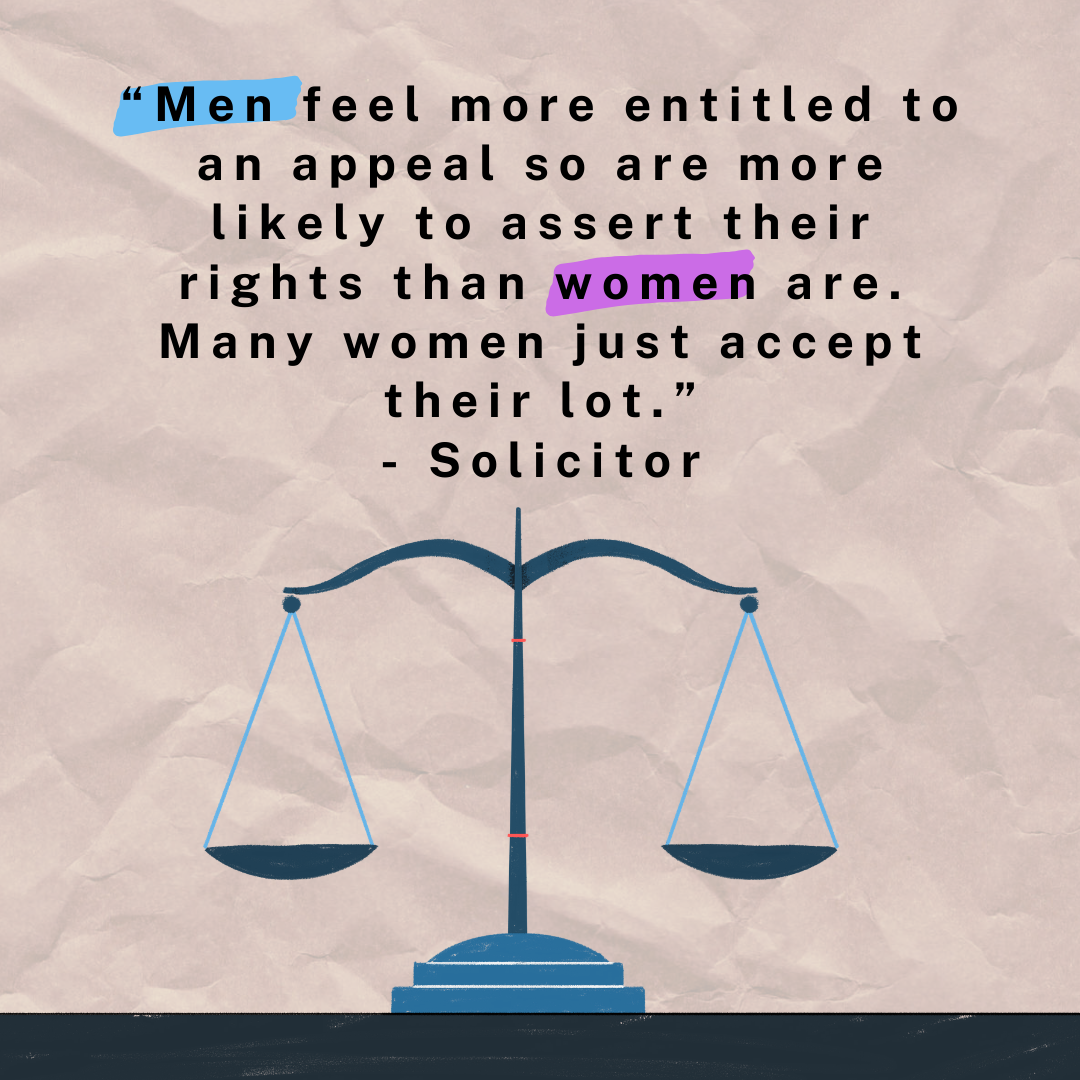
Righting Wrongs
What are the barriers to women seeking to overturn unsafe convictions or unfair sentences in the Court of Appeal (Criminal Division)?
Appeals to the Court of Appeal (Criminal Division) have dropped by 36% from 2011 to 2019. Recent research has highlighted the particular vulnerabilities of women in prison, leading to concerns women may have particular difficulties successfully accessing their right to appeal. There has been no prior research of women's experiences of appealing, so this research project set out to identify the barriers faced by women seeking to overturn unsafe convictions or unfair sentences in the Court of Appeal (Criminal Division).
Click through the slideshow to the left for some of the headline findings.
This research was only possible with the support of the Griffins Society Fellowship.
Read the abstract (1 page)
Read the executive summary (7 pages)
Read the full paper
‘She-Devils’
The anatomy of female wrongful convictions
The mechanisms by which women and men come to be wrongfully convicted differ significantly. The National Registry of Exonerations in the US shows that 63% of exonerated women were convicted in cases in which no crime in fact occurred (compared with 21% of male exonerees).
40% of female exonerees were wrongfully convicted of harming children or loved ones in their care.
We don’t keep such statistics in the UK, however, we must understand how and why it is that women are wrongfully convicted, and work to prevent it.
A Childhood Interrupted
Issy’s life was turned upside down when she lost her mum to the prison system
Issy has witnessed her mum being abused by various partners, suffer from drug and alcohol misuse, was taken from her and put into care and lost her one more time when she was sent to prison for 8 years.
Despite that, Issy has grown into an extraordinarily resilient and brave young woman, who is wise beyond her years. Her story has been featured on BBC Stories, asking the question; are children unfairly punished by their mothers’ imprisonment?
She has written her story in her own words, as has her mother.
Be sure to read it.
The Gift of Time
A story of transformation
Lilly Lewis believes that the day she was sentenced to 7 years in custody for fraud was the day she began to get her life back. An extraordinarily resilient woman, she survived multiple abusive relationships, drug and alcohol addictions, severe mental health problems and losing her children to the care system to become an advocate for reform. Her story is the true story of “criminal women” - all too often vilified in the press as ‘bad women’ when in reality they have faced enormous injustice.
Lilly has worked with the Women’s Justice Initiative from behind bars to turn her life story into a series of inspirational chapters, to help teach others why it is that women might break the law, and to discuss reform of a system that failed her over and over again. Her story has also been featured on the BBC, which you can read here.
If you would like to get in touch with Lilly, please write to our Women’s Justice Advocate at naima.sakande@criminalappeals.org.uk.
A podcast from APPEAL.
Untold stories from the wrongfully convicted.
Season One: Cookie
Season One of Surviving Injustice tells Cookie’s story, a woman we believe to have been wrongfully convicted of killing her baby. In this three-part series, we follow the sequence of events that led to her imprisonment and the fight to clear her name.
Cookie is a Women’s Justice client and is a fierce advocate for reform of the criminal justice system. Listen to her story now.
End Council Tax Imprisonment
Debtors’ prison alive and well in 2018
As hard as it is to believe, between 2010 and 2017, nearly 700 people were sent to prison for not paying their council tax. Many of these people were simply unable to pay when the time came due to personal crises – they were not deliberately avoiding their obligations.
APPEAL has assisted in a number of cases of women imprisoned for the non-payment of council tax. Several of these women were bailed from prison and their prison sentence found unlawful.
Even a short time in prison can have a particularly serious detrimental impact on mental health and social circumstances for women and their children. Prison can cause women to become homeless, have their children taken away and struggle to recover from the trauma of the experience
It's time to end sending women to prison for civil offences such as the non-payment of council tax. Click through to read more about this issue and to take action to end this practice.
Wales trailblazes as it ends prison sentences for council tax debts
In November 2018, Wales announced it would end the use of imprisonment for the non-payment of council tax. This enormous success was due in large part to the amazing campaigning work done by APPEAL supported Melanie Woolcock, a woman wrongfully imprisoned for being poor. Our campaign efforts were cited in the Government consultation document on ending the practise, and this wouldn’t have been possible without the help of our supporters and allies, so thank you!

